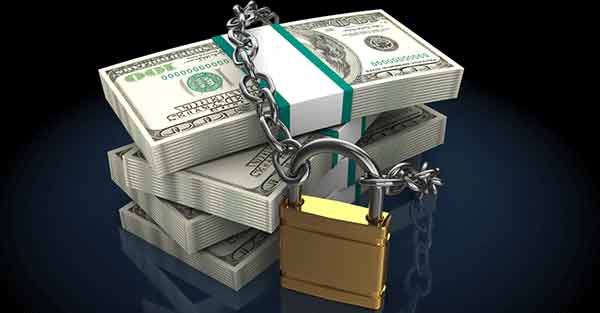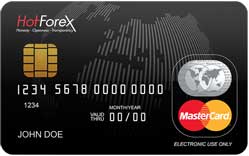December 6, 2021 | Forex Brokers
There are many reasons why people decide to open bank accounts offshore. They can include a better privacy protection, access to better banks where money are safer or simply better services that home based banks don't offer. The same reasons apply when it comes to brokerage accounts, whether it's stock trading accounts or offshore forex broker accounts.
There is a big misconception about the term "offshore" when it comes to the general public. Since the mass media tends to sensationalize everything and to make a big deal out of things that are not even newsworthy, there is a huge media campaign against "offshore tax havens" where journalists with zero legal background and economic understanding express their outraged opinions about scandals such as "The Panama Papers" without having a clue about what they are talking about. Considering all the bad reputation the media has given to the very idea of everything "offshore", I think it would be a good idea to first explain what the term "offshore" stands for and the actual truth behind offshore accounts.
The term "offshore account" refers to any account located in a different jurisdiction from the country of residence. For example, if a French resident opens a bank account at Barclays Bank in the United Kingdom during his trip to London, that is considered an offshore account. The same logic applies to any other pair of countries: Greek residents may have offshore accounts in Sweden, German residents can have offshore accounts in Switzerland and Chinese residents can have offshore accounts in Singapore. You get the idea.

Figure 1: Banks in Singapore are considered among the safest in the world.
The mass media narrative is that people open offshore accounts to hide their illegal activities and ill-gotten money or to evade taxes. While this may be true in the case of a very small number of people, we don't have to forget that most people doing illegal activities and evading taxes use domestic accounts. There is nothing wrong with offshore accounts as compared to domestic accounts. Both of them can be used for legal activities and legitimate reasons while criminals may use them for evil purposes. Another argument against offshore accounts often used by the media is the famous "tax haven" status of some countries where many people open offshore accounts. They think it is somehow evil to move your money into a tax haven, because you could have kept them somewhere else (as if your already taxed money are not yours to do whatever you want with them).
There are two main things many people fail to understand about the concept of going offshore:
1) Offshore does not necessary mean Tax Haven.
2) Tax Haven does not mean illegal activity.
For the first part, it is worth mentioning that most offshore activities are happening in high-tax jurisdictions (a lot of foreigners do business and have accounts in the United Kingdom and United States which are not tax havens for sure). For the second part, it is worth pointing out that the vast majority of business and money that move through tax havens are legal and legitimate.
Actually, because of the continued pressure from the OECD and the international community made against those so-called tax havens, many of them now have stricter rules for opening accounts and the due-diligence requirements are so severe that it is much easier for criminals to use home-based banking institutions than to move into tax havens.
As a conclusion, it is 100% legal to have offshore accounts, from bank accounts to brokerage or forex trading accounts. There may be restrictions for people from certain undemocratic countries such as North Korea, but for people living in free countries it is perfectly legal to have offshore accounts. However, for people who reside in certain jurisdictions such as the United States, there are some mandatory reporting requirements for those who hold offshore accounts. If you live in such jurisdiction and you want to open an offshore account, it is highly advisable to consult a tax lawyer or an accountant to make sure you do the correct reporting and stay on the safe side.
Going back to forex trading, which is the main topic of this website, I will discuss about the benefits of having an offshore forex trading account. First of all, it is worth noting that not all countries have home-based forex brokers. If you live in a country where there are no domestic forex brokers, you have no choice but to go offshore if you want to trade forex. Even if you live in a country where there are several domestic forex brokers, you may find their conditions to be less attractive than those offered by the leading international brokers. Also, if you intend to open a large forex account it is important to trust the broker and be confident that your funds are secure.
In most countries, the financial industry is not very developed and advanced services such as forex trading are not available. Financial institutions offer only basic services and forex trading is not regulated so there are no brokerage companies offering them to retail clients. Even in many developed economies you will find it very hard to encounter a good retail forex broker that can offer competitive trading conditions such as advanced charting, tight spreads, good execution and high leverage.
From my vast experience about forex trading, I can say that there are only a handful of countries where you can find reliable forex brokers. Those countries are: United States, United Kingdom, Switzerland, Denmark, Cyprus, Ireland, South Africa, Hong Kong, Japan and Australia. I might have missed one or two countries that also have good domestic brokers, but you get the idea. If you don't live in one of the countries mentioned in the list, it is very likely that you are unable to trade forex using a domestic broker and benefit from all the advantages modern brokers offer to their retail clients. This means that except for people living in about ten countries, the rest of the world willing to trade forex should choose an offshore broker (actually there may be good reasons for people living in the mentioned countries as well to choose a foreign broker, because you may find that the best broker for you is from another country).
Having an offshore forex brokerage account also has a side benefit. By moving some of your money offshore you diversify the risk of having all your eggs in the same nest. Most people in this world only have a domestic bank account (or several domestic bank accounts) and are totally exposed to the financial system of their home country. History shows us many situation when local banks collapsed or when hard currency held in local banks was forcefully converted into local currency just to be devalued afterwards. Just as it is good to hold foreign currency to diversify from the risk posed by the devaluation of your country's currency, it is also good to hold a foreign account (a bank or a brokerage account are equally good) to diversify from the risk of a domestic financial meltdown.
The best way to benefit from having an offshore account is to have a debit card attached to it. This way you will be able to use the money held offshore instantly and without additional repatriation expenses. With an offshore debit card you can make online purchases, you can pay at any POS where Mastercard is accepted (most offshore debit cards are Mastercard, but some institutions also offer Visa cards) or you can just withdraw cash from any local ATM. Another advantage offered by your offshore debit card is the possibility to have a debit card in an international currency such as the US Dollar or the Euro and avoid paying conversion fees when buying online or when going abroad.
Local banks in many less developed countries don't offer debit cards that work internationally. Such cards will prove to be useless if you vacation abroad. In such situation, having a Mastercard issued by a solid international forex broker will be more than useful.
If you want more arguments for having an offshore account with a debit card attached, think about the countries experiencing a shortage of foreign currency reserves that are implementing different types of capital controls. Just look at what Nigeria did in 2016 because of the oil price crash that left the country without much needed US dollars. Because of reduced foreign exchange reserves and a local currency (the Naira) pegged to the US Dollar, the National Bank of Nigeria was forced to limit the amount of foreign currency local banks are able to provide to their clients when traveling abroad. Many Nigerians traveling to Dubai discovered that their local debit cards had very low daily spending limits and had their vacations ruined, although they had enough money in their local bank accounts. This happened because their country was experiencing economic hardship, and even if they had US Dollars they were not totally insulated from the economic problems of their country, because they could not use them freely abroad. Having an offshore debit card would have proven to be amazing in such circumstances.
Another good example of a local shortage of money is the Greek debt crisis. During the bailout negotiations the Greek National Bank was forced to impose very strict capital controls and people were forced to queue at local ATM machines to withdraw a few Euros every day, because they were not allowed to withdraw more by their local banks which were running out of cash. However, Greeks who had debit cards from foreign banks were able to withdraw their regular amounts of cash even during the crisis, because their banks were well capitalized and not vulnerable to the bailout negotiations.

Figure 2: Capital controls can make your money inaccessible for a long time. (Image source: www.internationalman.com)
There are many other examples of capital controls or currency pegs gone wrong only if we look in the past decade. Venezuela, Argentina, Iceland, Cyprus, Greece and Nigeria come to mind, but I am sure I have missed many others which didn't make big headlines in the international news but affected local people.
Finding a forex broker that offers a debit card attached to your trading account is not easy, as most brokers don't offer this benefit to their clients. I personally know only a few high profile forex brokers that offer debit cards.
Hot Forex is a very good broker from Saint Vincent and The Grenadines that offers a Mastercard debit card for quick access to the money in your account. Hot Forex offers all the tools a trader may need, and the money in your account are very easy to manage since you can transfer money from the Hot Forex Wallet to the debit card or to live trading accounts instantly at no cost. More information can be found on their site: Hot Forex Website.

Figure 4: Hot Forex Mastercard
While I don't know for sure about other forex brokers offering debit cards, I do know about one more broker that used to have debit card in the past, but no longer advertises it on the website. The broker is Ava Trade from Ireland (Ava Trade is a large broker but it's a market maker so it is not among my preferences). I don't know if Ava still offers a debit card, but they used to provide it in the past and may still be doing it.
As for US traders willing to open an offshore forex account (even without a debit card), I'm sorry but I can't recommend anything because the brokers I work with and the ones I know more about don't accept US traders. I really don't know if there are any solid brokers outside of the US that are willing to work with US clients considering the US regulations and the huge amount of paperwork and reporting required from foreign financial institutions that work with US residents.
► Best Forex Brokers for Large Accounts
Choosing a forex broker can be a very daunting task because the number of available options is overwhelming. With so many brokers advertising themselves as being the best, people go to specialized websites to read reviews and see broker rankings hoping they will find which broker is their best choice... Read More
► Largest Forex Brokers in The World by Volume
A lot of traders think that a big broker is better than a smaller one because a larger company has many advantages such as economies of scale, a better liquidity position and is the subject of higher scrutiny from the public and the regulators. While this basic assumption has some merit... Read More
Since there is a lot of confusion among retail traders about the overall quality of forex brokers, we have decided to create an advanced rating system and evaluate all the major forex brokers in the world according to the same set of criteria. Because we are aware that it is impossible to evaluate all forex brokers... Read More
► Volatility 75 Index Brokers & Strategy
In order to trade the Volatility 75 Index, you need a high quality broker that offers the VIX among its trading assets. We have gathered a list of the best Volatility 75 Index brokers that accept traders from South Africa and.... Read More
For the second consecutive year, Nigeria has been the fastest growing market for retail forex trading. The industry is seeing a stable growth rate around the world, especially in Africa and Asia, but among all countries Nigeria is growing at the fastest pace. What makes forex trading so attractive to Nigerians?... Read More
1. CYSEC (Cyprus Securities and Exchange Commission)
2. ASIC (Australian Securities and Investments Commission)
3. How Capital Controls Work (The Economist)
4. Offshore Financial Centre (Wikipedia)